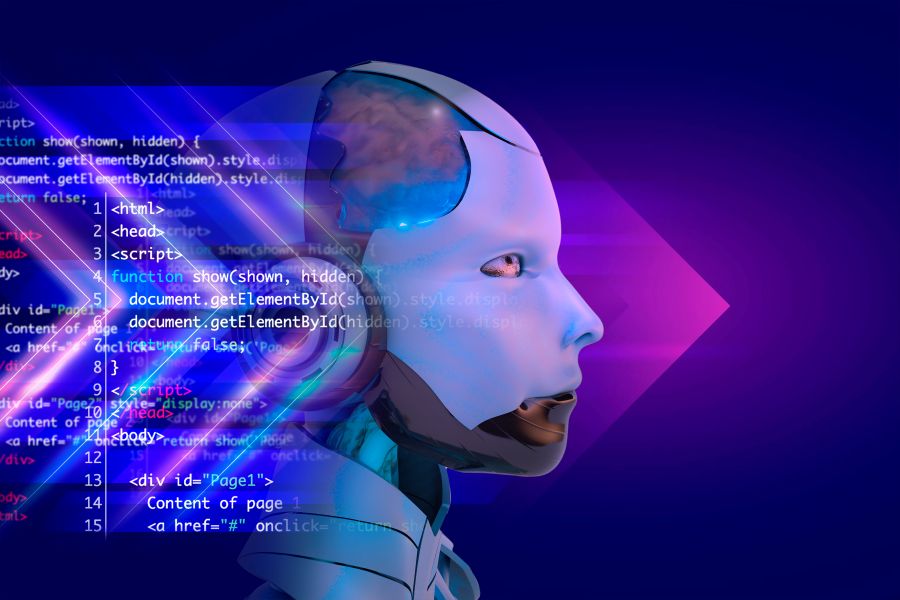AI Ethics in Higher Education – How It Will Shape the Education System
Let’s Talk AI Ethics for Our Teachers!
We’re bringing artificial intelligence into our schools; into the very way our kids learn and grow. That’s huge! But are we stopping asking the tough questions?
Are we preparing the people who spend every day shaping young minds – our teachers— for the ethical minefield that AI could potentially create?
How can we expect them to guide our students through this brave new world if they themselves haven’t had a chance to grapple with the moral dilemmas AI presents?
This isn’t just about tech; it’s about our values, our kids’ futures, and the very soul of education.
Let’s try to comprehend how we can inculcate responsible AI training in higher education.
Why AI Ethics Education for Teachers is Non-Negotiable
Think about it: teachers are the ones in the trenches, day in and day out, helping our kids make sense of the world. Now, a big part of that world is becoming increasingly intelligent – artificially so. Our teachers have to be ready to:
Make AI Less Scary, More Understandable
Help students see beyond the sci-fi and grasp what AI actually is, what it can do (and can’t!), and why it matters. We need to move past the hype and build real understanding.
Nurture Those Critical Thinking Muscles – Even More Than Before
In a world where AI can spit out answers in milliseconds, teaching kids how to question those answers, to sniff out what’s real and what’s not, becomes absolutely vital.
Guide Them on the Right Path with AI
Show students the ethical way to use these powerful tools – stressing things like honesty in their work, respecting people’s privacy, and being aware of potential biases.
Get Them Ready for a World Run by Algorithms
Help students understand the ethical considerations behind the AI they’ll encounter in their careers and as citizens. It’s about preparing them to be thoughtful participants in an AI-driven society.
Walk the Talk Themselves
Teachers need to feel confident and knowledgeable enough to use AI ethically in their own classrooms, setting a positive example for their students.
Suppose a student uses AI to write an essay. A teacher who hasn’t thought about AI ethics might just see plagiarism. But a teacher who has undergone Responsible AI training will see an opportunity to discuss the line between using AI as a tool and letting it do the thinking for you. They can explore the ethical implications of presenting AI-generated work as their own and guide the student toward a more responsible approach.
Integrating AI Ethics into Teacher Training and Professional Development
This isn’t about turning every teacher into an AI expert. It’s about giving them a solid foundation in key areas such as AI bias certification, AI governance training, and ethical AI development:
Spotting the Hidden Biases
Understanding that AI isn’t neutral – it learns from the data it’s fed, and if that data is biased, the AI will be too. This can lead to unfair outcomes.
Think about it: An AI tool used to suggest reading materials might be trained on a dataset that mostly features male authors. Teachers need to be aware of this potential bias and actively seek out diverse voices for their students.
Keeping Student Data Safe and Sound
Knowing the ethical responsibilities around collecting and using student information for AI-powered tools. AI data privacy is a big deal.
Teachers should understand what data an educational app collects, how it’s used, and whether it’s protected. They can then have open conversations with students about online safety and responsible data sharing.
Peeking Inside the “Black Box”
Recognizing that sometimes, even the experts don’t fully understand why an AI makes a certain decision. This lack of transparency raises ethical questions.
If an AI assessment tool flags a student’s work, teachers need to be aware that the AI’s reasoning might not be clear. They shouldn’t rely solely on the AI’s judgment without their own critical evaluation.
What Does “Your Own Work” Even Mean Now?
Grappling with how AI is changing the definition of academic honesty and figuring out how to assess learning in this new landscape.
Instead of just banning AI writing tools, teachers can explore how they can be used ethically – for brainstorming, outlining, or even as a starting point for revision – while still emphasizing the importance of original thought and proper citation.
How Will AI Change the World of Work (and Everything Else)?
Thinking about the broader societal impact of AI and helping students develop the skills and ethical frameworks to navigate that future.
For instance, teachers can lead discussions about how AI is changing different jobs and encourage students to think about the ethical implications of automation and the importance of developing uniquely human skills like creativity and empathy.
How Do We Actually Make This Happen for Our Teachers?
We can’t just expect teachers to figure this out on their own. We need to build support structures:
Start Early in Teacher Training
Introduce the basics of AI ethics certification right from the beginning, in colleges and universities where future teachers are learning their craft. Make it a core part of their education.
Offer Ongoing Learning for Current Teachers
Provide practical workshops, online AI ethics courses, and mentorship programs that help experienced teachers get up to speed on AI governance training and how it relates to their subjects. Keep it relevant and hands-on.
Give Them the Right Tools and Resources
Create easy-to-understand materials, lesson plans, and real-world examples that teachers can use directly in their classrooms to discuss AI ethics with their students.
Build a Community of Learning
Create spaces – both online and in person – where teachers can connect, share ideas, ask questions, and learn from each other’s experiences in navigating AI ethics education.
Lead From the Top
Schools and educational organizations need to show that ethical AI development is a priority. This means investing in training, developing clear guidelines, and fostering a culture of responsible innovation.
Let’s Do This Together, For Our Kids
Are you ready to be at the forefront of this educational transformation?
The need for educators fluent in both the power and the ethical considerations of AI has never been greater. Imagine leading the charge in your school, confidently integrating AI tools while fostering a generation of ethically aware digital natives.
AI CERTs, a renowned organization with over 40 role-based AI and Blockchain certifications, offers a unique pathway for passionate educators like you. Dive into specialized programs like AI+ Educator and AI+ Ethics. These cutting-edge certifications are designed to equip you with the practical skills and deep understanding of AI principles and ethical frameworks necessary to confidently navigate this evolving landscape.
By becoming certified in AI+ Educator and AI+ Ethics through AI CERTs, you’ll gain the expertise and credibility to:
- Lead AI integration in education within your school or district.
- Develop and implement ethical AI guidelines for students and faculty.
- Become a sought-after mentor and resource for your colleagues.
- Empower your students with the critical thinking skills needed to thrive in an AI-driven education system.
The future of education is intelligent and ethical. Be the leader who makes it happen.
Recent Blogs

FEATURED
How AI is Used in Software Development?
April 11, 2025
FEATURED
How to Keep Up with Prompts?
April 8, 2025
FEATURED
AI Ethical Approaches – Putting AI Ethics into Practice
April 2, 2025
FEATURED
An Introduction to AI Training Methods and Data Influence
March 25, 2025
FEATURED
The AI Revolution in Customer Service- Shoppers Demand More
March 25, 2025